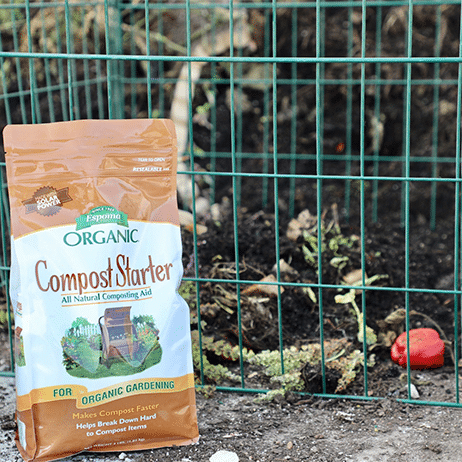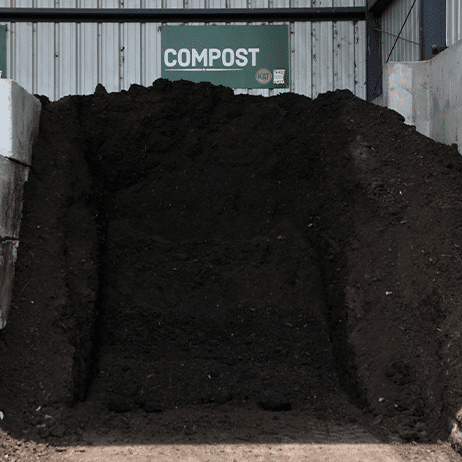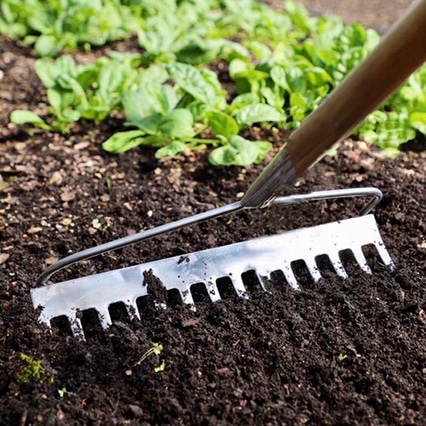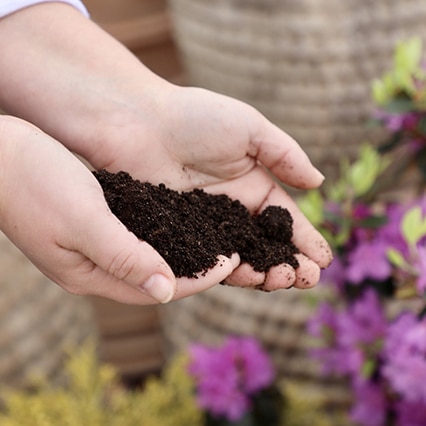Composting is an excellent way to reduce waste and to also begin your path to healthy soil. There is a simple way that you can create compost in your own home. This would be to develop a compost pile or bin, which we will talk about how to build later in this blog.
Incorporating compost into your soil has extremely beneficial effects on the health and productivity of our gardens and landscapes. But why? Compost is dark, nutritious material that is the result of microorganisms feeding on organic material like food scraps, grass clippings, fallen leaves and breaking them down into nutrients that plants can then take up from the soil. For this decomposition to occur, oxygen must be present, meaning that if those same materials make their way to a landfill, they do not decompose with oxygen and therefore methane is the byproduct.
As one of the most prevalent greenhouse gases, methane is a large contributor to global warming by both absorbing energy and preventing heat from escaping into space. Therefore, composting at your home is not only helpful for your gardens, but it’s helpful to reducing the amount of methane gas being created in landfills. You can help save the planet by composting at home.
The Basics of Composting
To create a compost pile outdoors, all you need is some bare ground and some plant waste. One of the benefits of creating a pile outdoors is the beneficial insects and organisms that assist in breaking down plant material will find their way to your pile without any additional help from you. Although, if you wanted to speed the process along you can purchase some worms from Colonial Gardens and add them to the pile. A successfully built compost pile is one that is layered with the base being bare earth, the first layer being small branches or straw, the second layer being organic waste, and the optional top being a cover to retain moisture.
When building a compost bin, be mindful of what structure and what materials you are using. A good composting setup will allow for oxygen to interact with the organic material. You can use chicken wire or welding wire to create an upright cylinder. You can also use cinder blocks or wooden pallets with open slats to create a box. A quick and easy option is the Bosmere Compost Bins that we sell at Colonial Gardens to help contain your compost. The Bosmere bins are strong plastic-coated metal frames designed to provide optimum oxygen, while being a stable area for you to throw majority of your compost in.
In terms of size, a 3’x3’x3’ dimension is ideal for a good ratio of surface area to volume of soil. This design would allow plenty of oxygen to reach the pile, but also allows the pole to retain heat which aids in the decomposition and helps to kill off any plant pathogens that might be present. It’s always a good idea to turn or mix compost piles about 3 times a month, any more than that and the decomposition of your plant material will be slowed down.
Materials you need and what to avoid
There are two very important ingredients for a compost pile- nitrogen and carbon. Nitrogen rich materials are usually green plant material that are high in moisture and can be things like food scraps, grass clippings, and plant trimmings. Carbon rich materials are things that have less moisture and tend to be brown and woody. These can be things like dead leaves, twigs, newspaper, and straw. The ratio of these two ingredients is important as well. There should be 2-3 times more of the brown or carbon-rich material than there is of the green or nitrogen-rich material.
There are also materials that you do not want to compost at home. Many meats and dairy products would attract rodents or other creatures to your compost bin that you and your neighbors probably wouldn’t appreciate. These products can also smell as they don’t break down as quickly as plant material. Diseased plant material is another one to avoid. If your compost does not get hot enough to kill the pathogens you could then spread that disease to the rest of your garden.
To aid in the production of your compost be sure to check out Espoma’s Organic Compost Starter, sold at Colonial Gardens. This compost starter is an additive of billions of microbes that will help your waste material to break down faster. In addition to the microbes this starter offers proper energy sources and pH balancers to assure composting success!
“Cold” Composting for the “Lazy Gardener”
The method that was described above is often referred to as a “hot” composting, as it creates warmth and the ideal environment for microbes to enter and break down material faster. “Cold” composting is another method that you could try if you are not worried about how long it takes or about killing plant pathogens. In cold composting you can either build a bin, or do your composting directly on the ground, there is no need to do any layering here and turning is a matter of preference. This method of composting will get the job done; it will just be a much slower process than hot composting.
Here at Colonial Gardens, we are big into composting our own material and trying to run a sustainable operation. Any plant material that unfortunately must be thrown away, gets put into our own compost bin. This bin is emptied by our sister company, who then takes the composted material and grinds it up to turn it more quickly into usable compost. We also are sure to compost any weeds that we pull on our property. In our Colonial Kitchen we also compost any food waste that we produce.
We hope that through this blog we have given you all the inspiration and information you would need to start your own compost bin at home. Composting is a great way to reduce the number of wasted resources your household produces, and you help save the planet through a reduction in greenhouse gases. We offer compost bins, compost starter, bulk compost & other materials to help make starting this initiative easy! If you have questions, please come in or give us a call. We are here to help in any way that we can.




